Hi there, fellow dog parent! I’m Dr. Candy, your friendly holistic veterinarian. Today, let’s talk about a topic that’s close to my heart – Anatolian Shepherd Dog Dental Health. You know, dental health is just as important for our four-legged friends as it is for us. In fact, it plays a crucial role in their overall health.
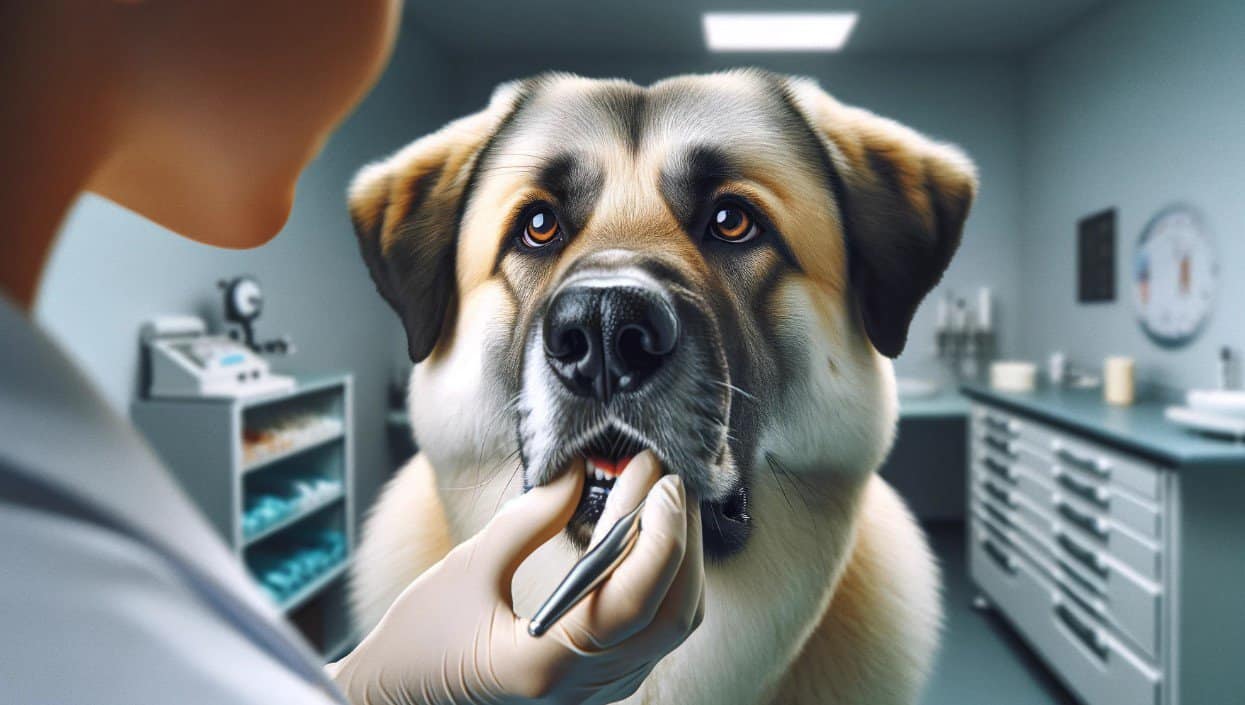
Imagine this: your Anatolian Shepherd dog greeting you with a wagging tail and… bad breath. Not a pleasant experience, right? But bad breath can be more than just an inconvenience. It can be a sign of underlying dental issues. And when it comes to Anatolian Shepherd Dogs, they have their own unique set of dental health challenges.
From understanding the signs of dental disease to exploring conventional and holistic treatments, we will navigate this journey together. Whether it’s “Anatolian Shepherd Dog teeth cleaning” or “oral health in Anatolian Shepherd Dogs”, I’ve got you covered. So, let’s dive in and give your Anatolian Shepherd Dog the best dental care possible.
Signs of Dental Disease in Anatolian Shepherd Dog
Just like humans, your Anatolian Shepherd Dog can develop dental health issues. It’s crucial to be aware of the signs and symptoms, as early detection can help prevent serious complications. If you’re a proud owner of an Anatolian Shepherd Dog, then it’s time to put on your detective hat and learn about the signs of dental diseases in your canine companion.
Bad breath is the most common and noticeable sign of dental problems. If your Anatolian Shepherd Dog’s breath starts to smell more than usual, it’s time to check their dental health. However, don’t mistake a dog’s natural breath with a dental issue. It’s the excessively foul odor you need to watch out for.
Other signs include a change in eating habits. If your dog is avoiding chew toys or seems hesitant while eating, it could be due to oral discomfort. You might also observe excessive drooling or a sudden loss of appetite. These are all potential signs of dental issues.
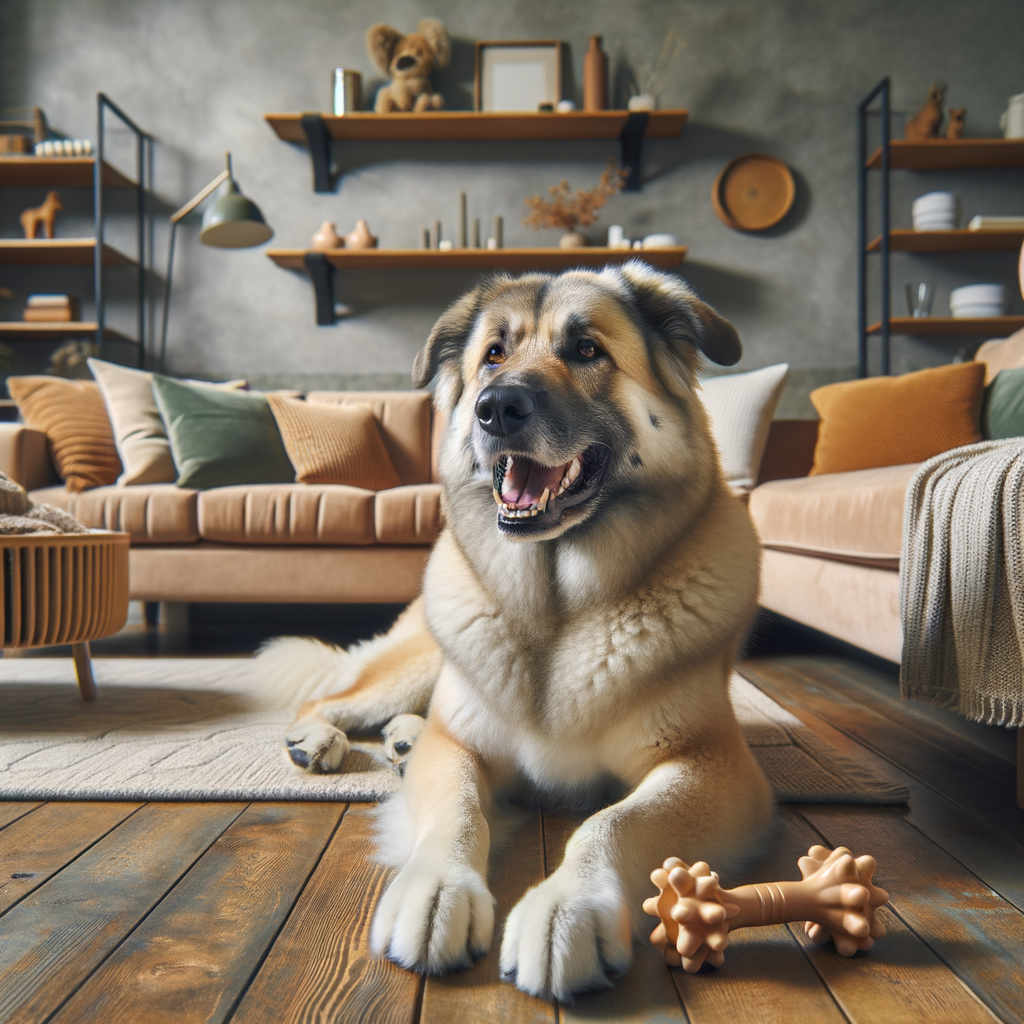
Physically, you might notice yellow or brown discoloration on your dog’s teeth, commonly known as tartar. This can lead to gum disease if not treated in time. In more advanced stages, you may see bleeding gums or loose teeth.
Changes in behavior can also be a sign of dental disease. If your Anatolian Shepherd Dog is pawing at their mouth or face, or if they’re being unusually aggressive, it could be due to dental pain. Remember, dogs can’t tell us when they’re in pain, so these behavioral changes can be their way of communicating discomfort.
Being aware of these signs is the first step towards maintaining your Anatolian Shepherd Dog’s dental health. In the next sections, we’ll take a look at common dental health issues in Anatolian Shepherd Dogs, conventional and holistic treatments, and some recommended dental chews and products. Let’s work together to ensure your Anatolian Shepherd Dog has a healthy, happy, and pain-free life.
Common Dental Health Issues In Anatolian Shepherd Dog
When it comes to Anatolian Shepherd Dog dental health, it’s crucial to be aware of the common issues that this breed can face. Just like any other dog, Anatolian Shepherds are prone to several dental health problems that, if left untreated, can lead to serious complications.
- Periodontal Disease: This is the most common dental issue in Anatolian Shepherds. It starts with the accumulation of plaque, which hardens into tartar. If not removed, it can lead to gum inflammation (gingivitis), and eventually, periodontal disease, causing pain and tooth loss.
- <strong>Broken Teeth: Anatolian Shepherds are known for their strong jaws and love for chewing. This can sometimes result in broken or fractured teeth, leading to pain and potential infections.
- Oral Tumors: While not as common, oral tumors can occur in Anatolian Shepherds. Regular dental check-ups can help detect any abnormal growth early.
Understanding these common dental health issues in Anatolian Shepherds is the first step towards preventative care. Regular teeth cleaning, professional dental check-ups, and a balanced diet can significantly reduce the risk of these problems, ensuring your Anatolian Shepherd maintains good dental health.
Conventional Dental Health Treatments
When it comes to maintaining the dental health of your Anatolian Shepherd Dog, there are several conventional treatments that you may consider. One of the most common is anesthetic dental cleanings.
Anesthetic Dental Cleanings
Anesthetic dental cleanings involve putting your dog under general anesthesia and then performing a thorough cleaning of their teeth and gums. This can remove plaque and tartar build-up, helping to prevent diseases like gingivitis or periodontal disease. However, this procedure is not without its risks. For Anatolian Shepherd Dogs, it’s crucial to understand the potential individual health obstacles that can arise.
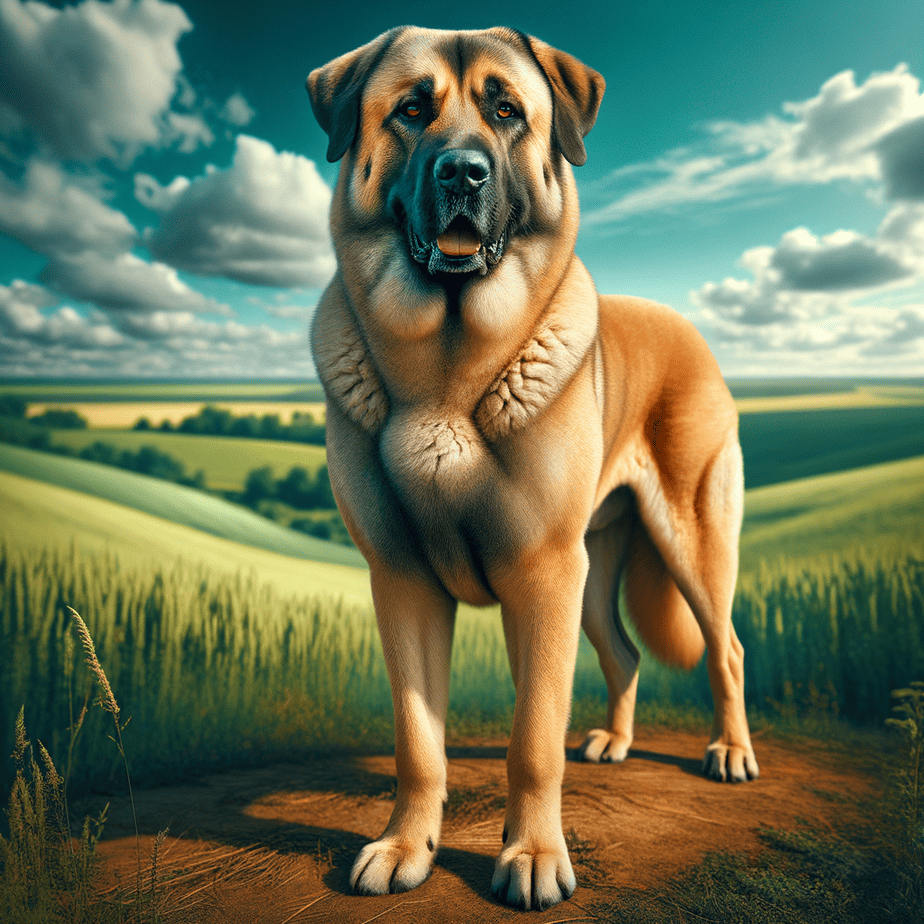
Potential Individual Health Obstacles
While anesthetic dental cleanings are generally safe, they do come with potential risks. For instance, some Anatolian Shepherd Dogs may have heart problems that make anesthesia more dangerous. In these cases, it’s essential to discuss the risk with your vet before proceeding.
Another potential obstacle is drug sensitivities. Some dogs may have adverse reactions to the anesthesia used, resulting in complications. Again, discussing this with your vet beforehand can help to mitigate the risk.
Other dogs may suffer from seizures, which can be triggered by the stress of the procedure or the anesthesia itself. If your dog has a history of seizures, it’s critical to discuss this with your vet.
Finally, extreme age can also be a factor. Older dogs are often more at risk from anesthesia, and may also have other health issues that can complicate the procedure. If your Anatolian Shepherd Dog is elderly, it’s essential to have a thorough health check before considering anesthetic dental cleanings.
In conclusion, while anesthetic dental cleanings can be an effective way to maintain your Anatolian Shepherd Dog’s dental health, it’s important to be aware of the potential risks and discuss them with your vet. This way, you can ensure the best possible care for your furry friend.
Dr. Candy’s Holistic Approach To Oral & Dental Health
As a dog parent, it’s important to understand that your Anatolian Shepherd Dog’s dental health is not just about regular teeth cleaning. It also has a lot to do with the diet they consume and the beneficial bacteria that live in their mouth.
Diet- Low Carbs, Avoid Added Sugars, Enzymes In Fresh Food
One of the key factors in maintaining your Anatolian Shepherd Dog’s dental health is their diet. A diet high in carbohydrates and sugars can lead to plaque buildup and tooth decay. Therefore, it’s crucial to feed your furry friend a low-carb diet. This is because carbs break down into sugars, which can stick to your dog’s teeth and lead to plaque and tartar buildup.
Added sugars are also a big no-no. Just like in humans, these can contribute to tooth decay in dogs. Instead, focus on providing fresh foods that are rich in enzymes. Enzymes play a crucial role in breaking down food particles and preventing them from sticking to your dog’s teeth. Foods like raw carrots, apples, and celery can be great additions to your dog’s diet as they naturally clean your dog’s teeth and are rich in beneficial enzymes.
Oral Health Specific Probiotics
Another important aspect of your Anatolian Shepherd Dog’s dental health is the balance of bacteria in their mouth. Just like in our human mouths, dogs have both good and bad bacteria. The key is to promote the growth of beneficial bacteria that can help keep their teeth and gums healthy.
That’s where oral health specific probiotics come in. These are supplements that contain live beneficial bacteria. They can help balance the microbiome in your dog’s mouth, reducing the risk of dental disease. One product I highly recommend is Probiora for Dogs. This oral health targeted probiotic is specifically designed to promote a healthy balance of bacteria in your dog’s mouth, helping to keep their teeth and gums healthy.
Remember, your Anatolian Shepherd Dog’s dental health is not just about regular teeth cleaning. It’s also about providing them with a diet that supports oral health and promoting a healthy balance of bacteria in their mouth. With these holistic strategies, you can help keep your dog’s teeth and gums healthy and their breath fresh.
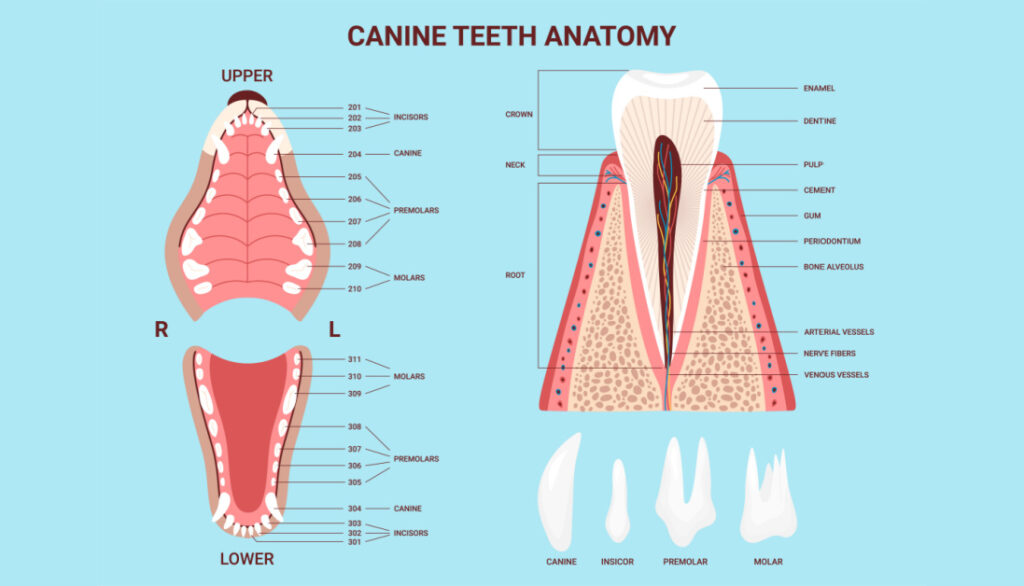
Recommended Dental Chews & Products For Anatolian Shepherd Dog
As a devoted dog parent, you’re probably aware of the many dental chews marketed towards maintaining your Anatolian Shepherd Dog’s dental health. However, it’s critical to understand that not all of these commercially promoted dental chews are beneficial for your furry friend.
Many commercially available dental chews are filled with added sugars, artificial colors, and preservatives, all of which are detrimental to your dog’s overall health. Additionally, they often lack the necessary texture to effectively clean your dog’s teeth and gums, rendering them ineffective in preventing dental diseases.
Moreover, some pet parents resort to water additives to maintain their dog’s oral health. However, these additives can inadvertently harm the beneficial bacteria in your dog’s gut, leading to a host of other health issues.
Dr. Candy’s Recommended Dental Chews & Products
So, what should you opt for instead? Here are some of Dr. Candy’s top picks for maintaining your Anatolian Shepherd Dog’s dental health:
Tendons
Tendons are a fantastic natural chew for your Anatolian Shepherd. They are tough and fibrous, which helps to scrape off plaque and tartar from your dog’s teeth. Plus, they are a good source of protein and collagen, promoting good joint health.
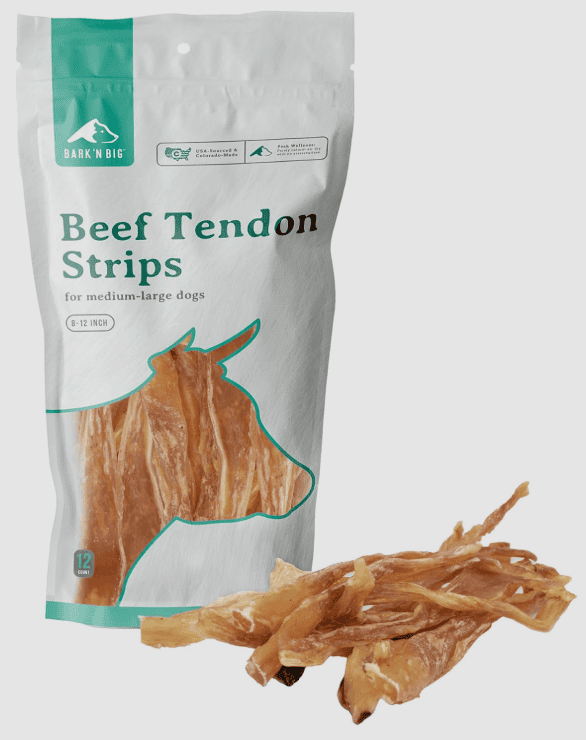
Raw Marrow Bones
Raw marrow bones are another excellent choice for maintaining your Anatolian Shepherd’s dental health. They are a natural source of calcium and phosphorus, which are essential for healthy teeth and bones. Furthermore, the act of gnawing on bones can help to clean your dog’s teeth and gums.
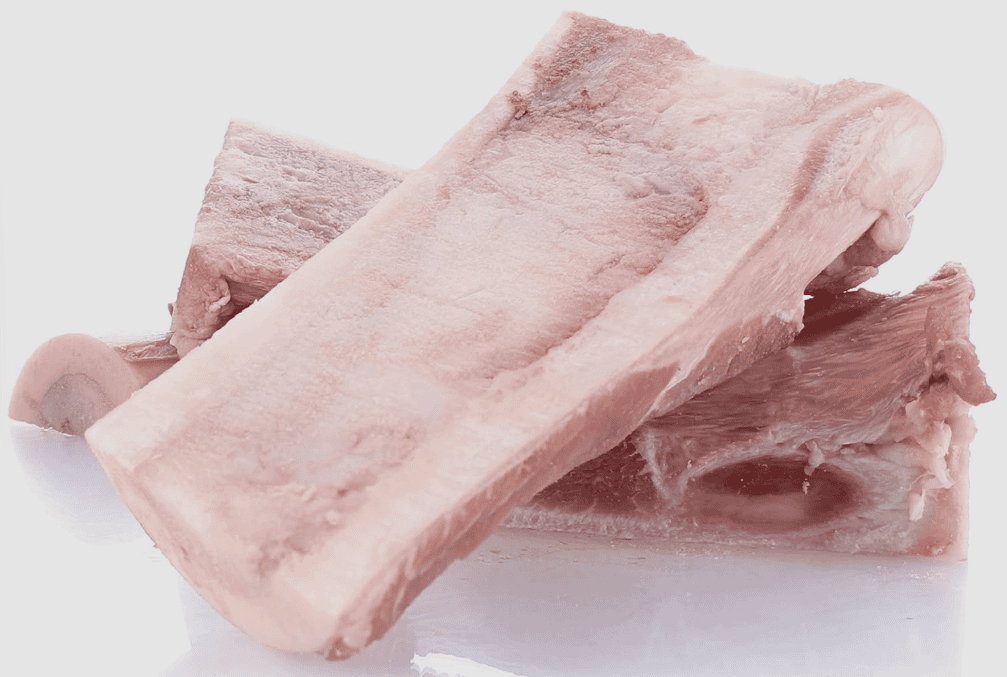
Bully Sticks
Bully sticks are made from 100% beef muscle, providing a natural and digestible chew for your Anatolian Shepherd. They can effectively remove plaque and tartar and are a good source of protein. However, always supervise your dog while they’re chewing on a bully stick to prevent any choking hazard.
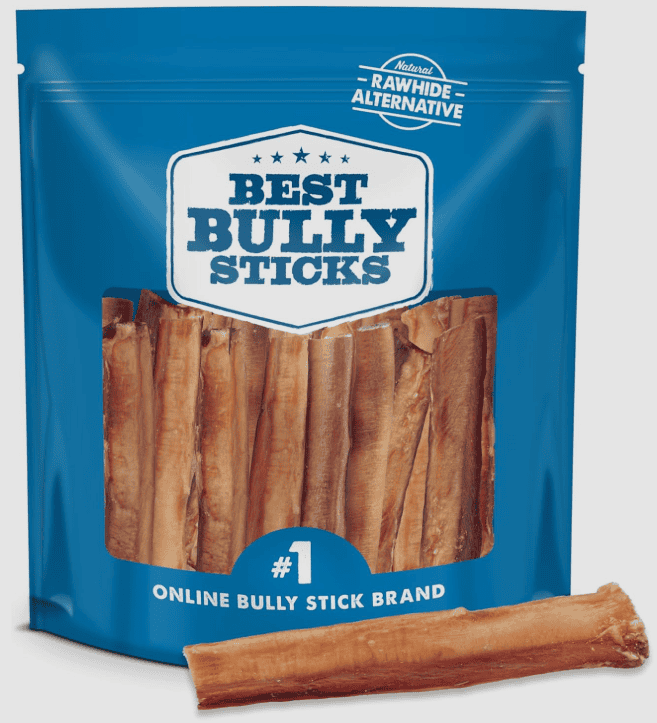
Remember, the key to maintaining your Anatolian Shepherd Dog’s dental health is regular care and the right products. By incorporating these recommended chews and products into your dog’s routine, you can help ensure they maintain a healthy and sparkling smile for years to come.
Frequently Asked Questions
1. How can I improve my Anatolian Shepherd Dog’s bad breath?
There are several ways to improve your Anatolian Shepherd Dog’s bad breath:
- Regular brushing of their teeth using dog-specific toothpaste and toothbrush.
- Providing dental chews or toys that help remove plaque and tartar buildup.
- Feeding them a balanced and high-quality diet that promotes good oral health.
- Scheduling regular dental cleanings with a veterinarian.
2. Are there any specific dental products recommended for Anatolian Shepherd Dogs?
Yes, there are dental products specifically designed for dogs, including Anatolian Shepherds. Look for toothpaste and toothbrushes made for dogs, as well as dental chews and toys that help clean their teeth.
3. How often should I brush my Anatolian Shepherd Dog’s teeth?
It is recommended to brush your Anatolian Shepherd Dog’s teeth at least 2-3 times a week. However, daily brushing is ideal for maintaining good dental health and preventing bad breath.
4. Can certain foods contribute to bad breath in Anatolian Shepherd Dogs?
Yes, certain foods can contribute to bad breath in dogs. Avoid feeding your Anatolian Shepherd Dog foods that are known to cause bad breath, such as garlic, onions, and certain spices. Opt for high-quality dog food that promotes good oral health instead.
5. What signs should I look for to determine if my Anatolian Shepherd Dog has dental problems?
Some signs that indicate dental problems in Anatolian Shepherd Dogs include:
- Bad breath
- Excessive drooling
- Difficulty eating or chewing
- Red or swollen gums
- Loose or missing teeth
- Bleeding from the mouth
- Changes in appetite
- Weight loss
